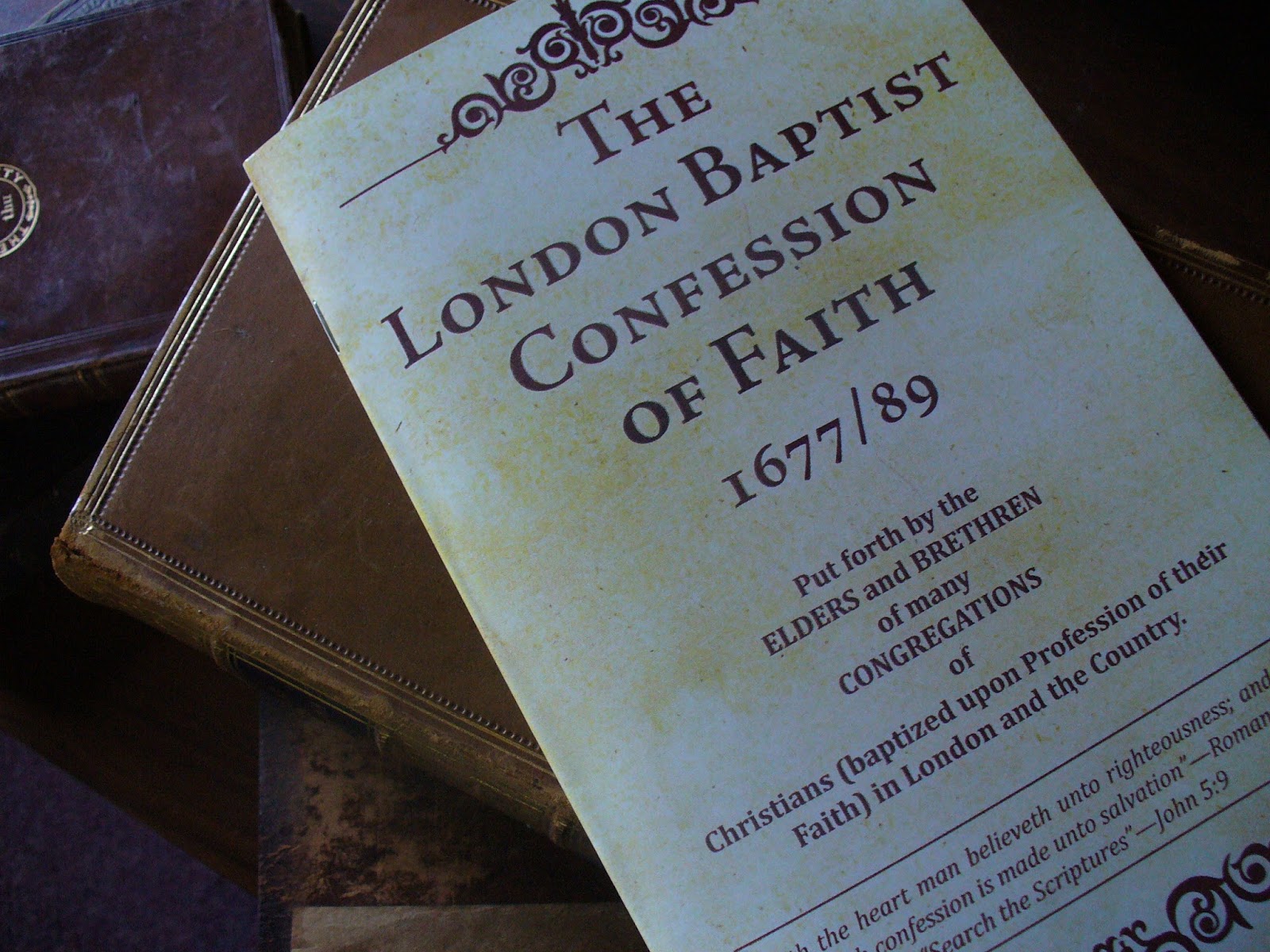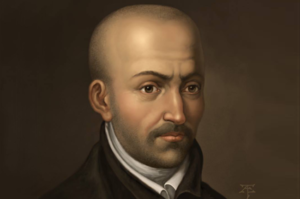 To my other readers, what Jose is referring to can be read in its entirety by clicking on this link —> http://www.spurgeon.org/~phil/creeds/bcof.htm#part5
To my other readers, what Jose is referring to can be read in its entirety by clicking on this link —> http://www.spurgeon.org/~phil/creeds/bcof.htm#part5God has actually decided beforehand how history will turn out by deciding when and where each and every individual will be born, knowing that they would choose certain actions depending on their circumstances. The list of events in human history could have been different if either the free creatures made a different choice in the circumstances in which they were placed or if God decided to place them in different circumstances. This act is known as actualizing a possible world. Now, some of my readers may be wondering “What is a possible world?” A possible world is, quite simply, a huge conjunction of statements which could be true about reality. A possible world is a huge conjunction of statements that could be true of reality, and at least one conjunction of statements actually will be true of reality. For example, one possible world could include, in its conjunct, the statements “Evan is responding to a question for a Q and A blog post”, “Evan is wearing his No Blind Faith T-shirt”, “Evan is wearing blue jeans”, “Evan has a nearly full can of Dr. Pop on his desk next to him”, “Evan has a statue of Jesus sitting on his computer desk next to his monitor”, and “Evan is fighting off hunger in order to finish this blog post”. All of these statements could be true of reality (and I’ll let you in on a secret, they’re all true of the actual world). But we could alter the list of statements in order to arrive at a different possible world. For example, the series of statements could compose of “Evan is responding to a question for a Q and A blog post”, “Evan is wearing his ‘Proud To Be An Apologist’ shirt he got from Cafe Press”, “Evan is wearing blue jeans”, “Evan had lunch prior to writing this blog post”, and “Evan has a statue of Jesus sitting on his computer desk next to his monitor”. In this possible world, 2 of the statements were identical, but the rest were different.
Now, God can actualize a series of statements like the ones above by using his knowledge of how each free creature would freely choose under any given circumstance. For example, God knew that had I been in the circumstances I was in, I would freely choose to put on the No Blind Faith shirt rather than some other shirt, and would decide to get a Dr. Pop out of the refridgerator and set it on my desk rather than some other beverage, and would decide to write this article prior to eating lunch, and so on. God actualized the possible world by creating a world in which I was in those circumstances he knew would prompt those reactions out of me. Moreover, each statement in the conjunction, if we’re considering the statements that take place in chronological order rather than the ones that take place simultaneously, God actualized the world that is actual by creating a world in which Neil Mammen becomes a Christian, becomes an apologist, creates the No Blind Faith website, a world where someone invents the Dr. Pop soda, a world where someone invents the computer, and so forth. The world with the statements “Evan is responding to a question for a Q and A blog post”, “Evan is wearing his No Blind Faith T-shirt”, “Evan is wearing blue jeans”, “Evan has a nearly full can of Dr. Pop on his desk next to him”, “Evan has a statue of Jesus sitting on his computer desk next to his monitor”, and “Evan is fighting off hunger in order to finish this blog post” wouldn’t be the actual world unless God actualized a possible world where Neil Mammen becomes a Christian, becomes an apologist, creates the No Blind Faith website, a world where someone invents the Dr. Pop soda, and so on and so forth. So He would have to create these people in the circumstances they were, knowing that they would choose to do these things in order for me to be wearing a No Blind Faith t-shirt, have a Dr. Pop soda can on my desk and even be typing a blog post at all. When you consider how all events in the entire history of the world interconnect like this, comprehending how God directs the world can become mind boggling very quickly! Only an omniscient God could grasp the complexity of how all of the events through history interconnect in actualizing other events.
To give a biblical illustration of how this plays out, let’s consider Jesus’ crucifixion; God knew that if Caiaphas was high priest in the first century, then he would freely condemn Jesus on grounds of Blasphemy and take Him to Pilate for execution. He knew that if Pilate was prefect in the first century, then he would freely comply with the demands of the crowd. And He knew that if Judas was born in the time and place that he actually was, then he would become Jesus’ disciple for a while and would freely choose to betray Jesus to the Sanhedrin. On Molinism, God providentially brought about the crucifixion by acting on His knowledge of how people would freely act if placed in these positions. God brought them about by placing them in those circumstances, and the people brought these events about of their own free will because they’re the ones who made the counterfactuals true of them. The entire passion narrative was orchestrated by God, yet each of the actors in the series of events were completely free. I believe the rest of human history is orchestrated in this same way.
I go into this in a lot more detail in the blog post “Molinism and Divine Foreordination”. Check that out if you want a more in depth look at my view of divine providence.
I would also take issue with the part that says that God withholds grace from some. I think that is unbiblical, and I would rebut the part that says God withholds grace from some by appealing to passages stating that God wants all people saved (2 Peter 3:9, 1 Timothy 2:4) and died for “the world” (John 3:16), “the whole world” (1 John 2:2), “everyone” (Hebrews 2:9), “all” (1 Timothy 2:6) which, taken together, can only plausibly be interpreted as the entire human race, and since God wants all saved and died for all, it would be a very simple inference that God would send grace to all so that they could be saved (since John 6:44 and John 6:66 say that no one can come to Christ unless God draws them). But apart from that simple inference from God’s universal salvific will and unlimited atonement, I’d also appeal to John 12:32 in which Jesus says “And I, when I am lifted up from the earth, will draw all men to myself”.
Now, the Calvinist is apt to interpret the scriptures cited above as “world of the elect” (for John 3:16), “all kinds” of people (for 1 Timothy 2:4), or “all of the elect” (for 2 Peter 3:9), but I’m not at all convinced by these interpretations. For one thing, that’s not a natural reading of any of those scriptures. Secondly, the Calvinists are adding words to these verses to make them compatible with TULIP. Thirdly, if the biblical authors meant “all kinds”, or “the world of the elect”, or “all of the elect” rather than the entire human race, then why didn’t they just say that? Surely the Greek language was large enough where they could have gotten the point across that they only meant all groups of people or the elect. The fact that the biblical authors use such various different kinds of universal language makes me think that they meant the entire human race. Fourthly, if this kind of hermenutic were applied consistently, we would find ourselves coming to “all kinds” (pun intended) of strange interpretations. For example, we’d have to conclude that Jesus created “all kinds” of things but not literally everything because John 1:3 says “Through him all things were made”. 2 Timothy 3:16 says “All Scripture is God-breathed and is useful for teaching, rebuking, correcting and training in righteousness” According to the all kinds hermenutic, we’d have to conclude that only all groups of books were divinely inspired. You know, some of the prophets, some of the gospels, some of the epistles, etc. But not literally ALL scripture. Only all kinds of scripture. So much for the traditional view of biblical inspiration and inerrancy.
Philippians 2:10 says “Every knee shall bow, and every tongue confess that Jesus Christ is Lord.” I think like many people, that this means that every one will intellectually acknowledge God’s sovereignty and power. Those who denied His existence, those who railed against Him and spat in His face, and who exalted their own wills against His will someday bow to Him when His second coming occurs. No one will say any longer “God does not exist” or “Jesus is dead”. They will be professing just the opposite. Well, according to Calvinist theologians, “all” doesn’t always mean “all” and “every” doesn’t always mean “every”. This could mean that “every kind” of knee will bow and “all kinds” of tongues will confess that Jesus Christ is Lord. There may be some or even many people who do not bow or confess Jesus’ Lordship, at least according to the “all kinds” hermenutic.
And what about Romans 3:23? Maybe only all kinds of people have sinned and have fallen short of the glory of God? What about Romans 5:12? Did Adam bring death to all men, or only all kinds of men?
For the Calvinist, words like “All”, “World”, and “Whole World” only mean “all”, “world”, and “whole world” when its convenient for them, when it fits their soteriology. I see no reason to interpret passages like John 3:16, 2 Peter 3:9, 1 Timothy 2:4-6, 1 John 2:2, and many others as meaning anything less than the entire human race. The only motivation that exists for interpreting these as less than the entire human race is if one is trying to shoehorn these verses into the T.U.L.I.P.
But, if God wants all people saved and died for all, then it is, as I said, a very simple inference to the view that God sends grace to all people…since it would make no sense for God to want all saved and not send the grace necessary to make choosing to receive salvation possible. Moreover, this inference leads to the inference that God’s grace is resistible, since if it were irresistible, universalism would result. But we know from several places in scripture that not all will be saved, therefore God’s grace must be resistible, not irresistible.
References
| ↑1 | because it renders God morally responsible for all the evil in the world |
|---|
Discover more from Cerebral Faith
Subscribe to get the latest posts sent to your email.






